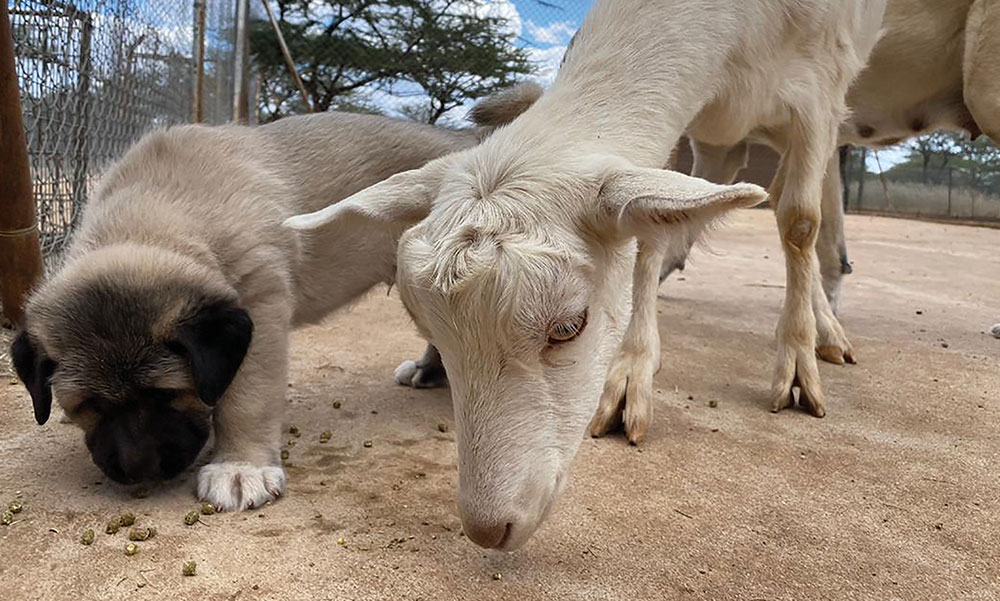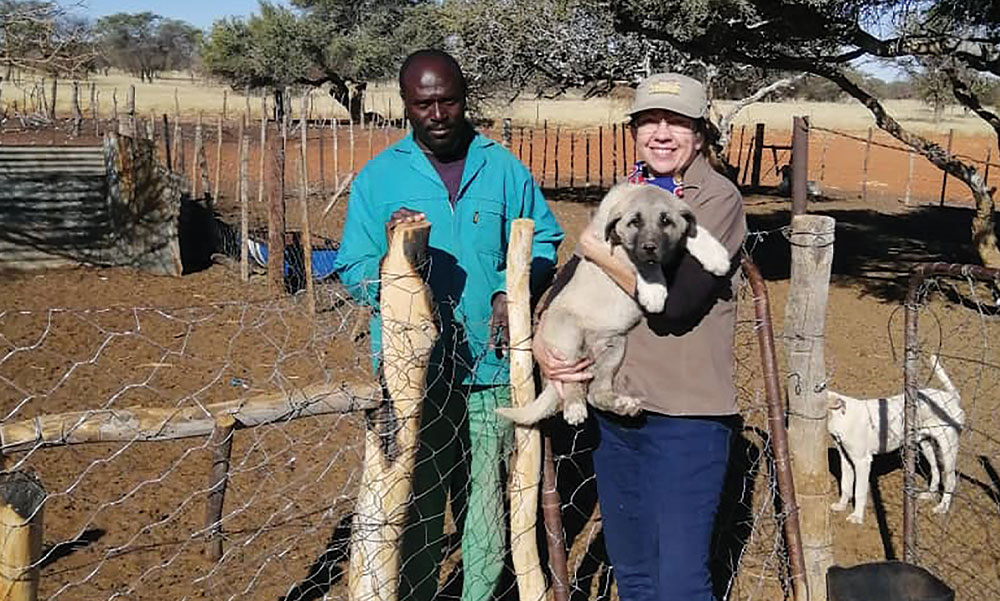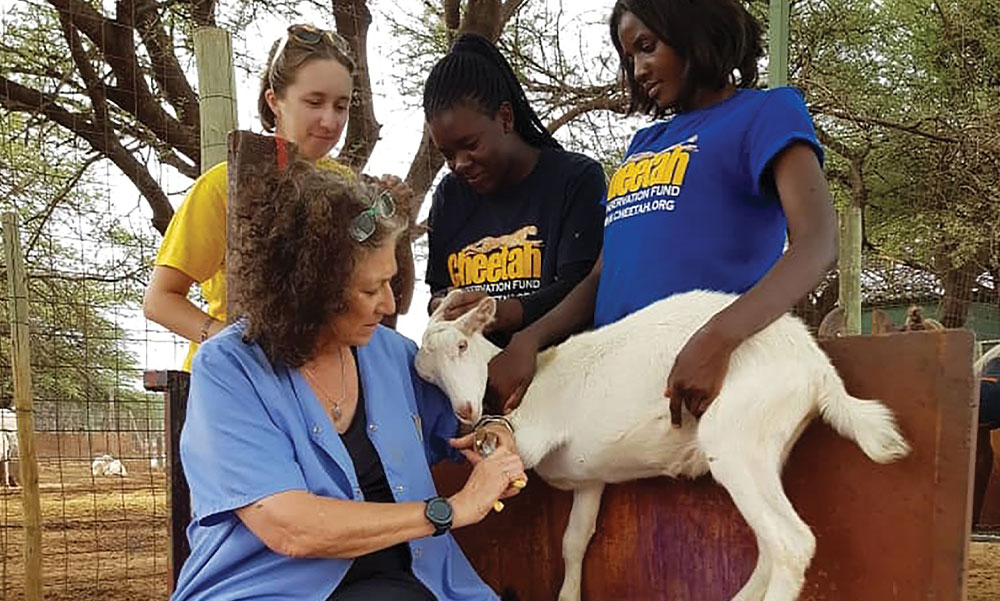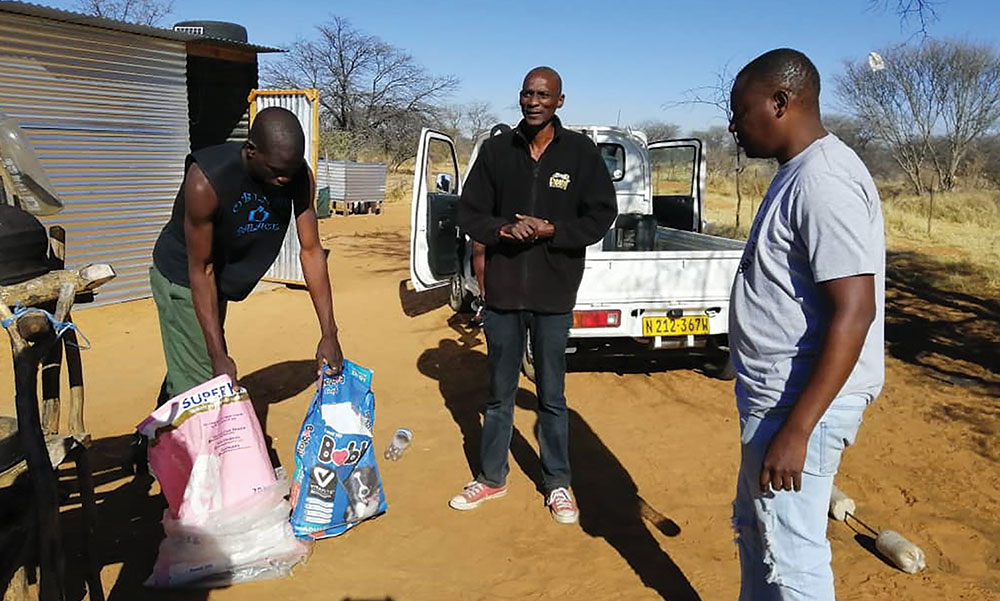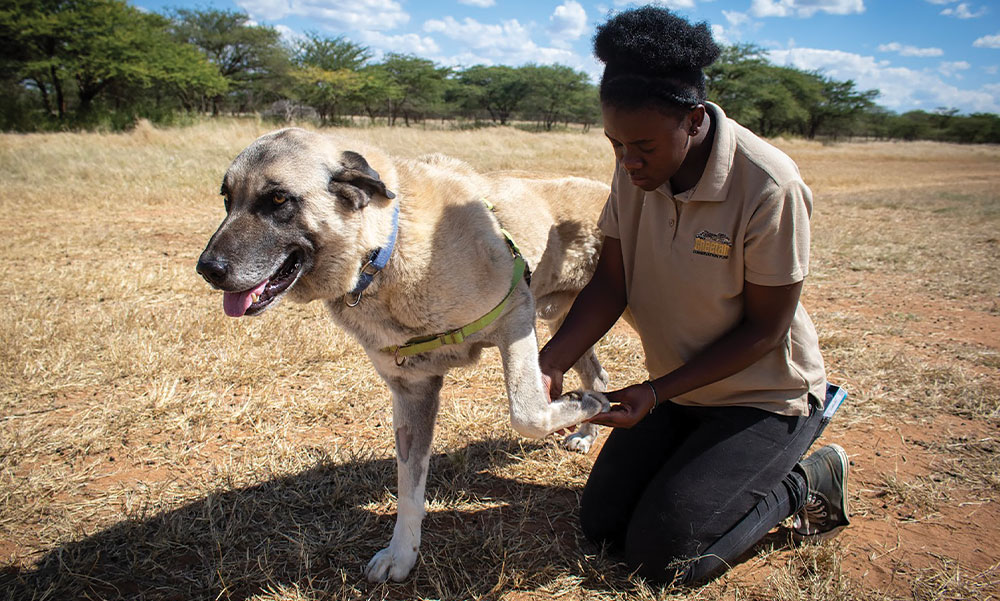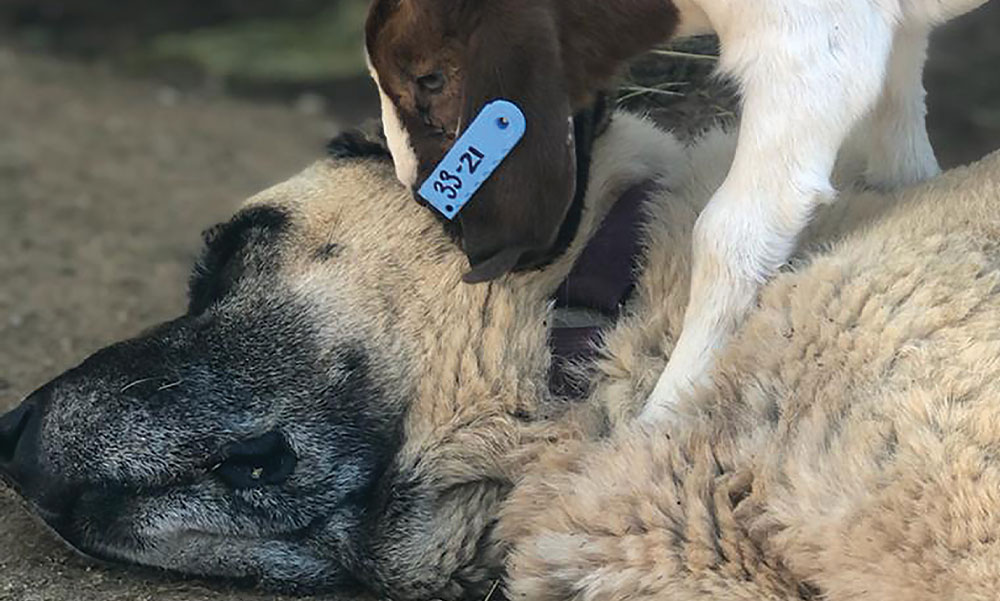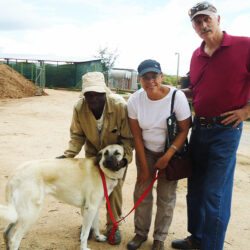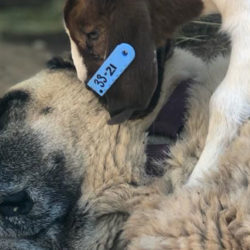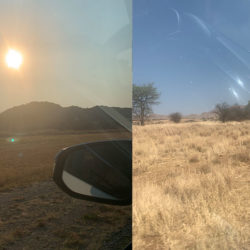Help Save Cheetahs with Livestock Guarding Dogs
-
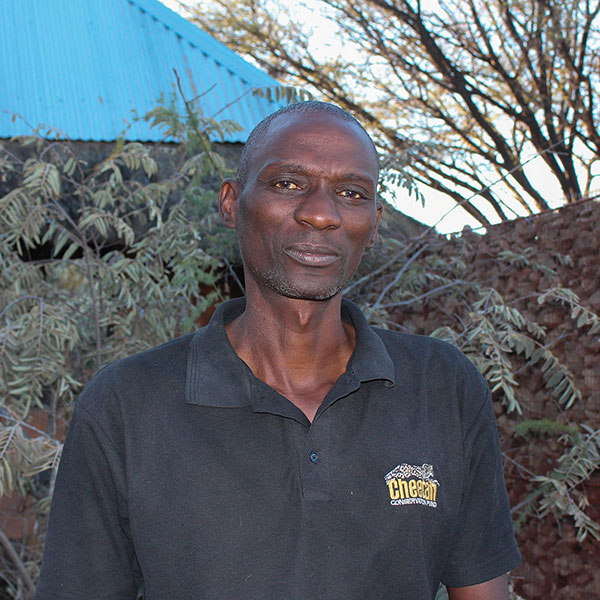
- by Gebhardt “Gebs” Nikanor October 26, 2021
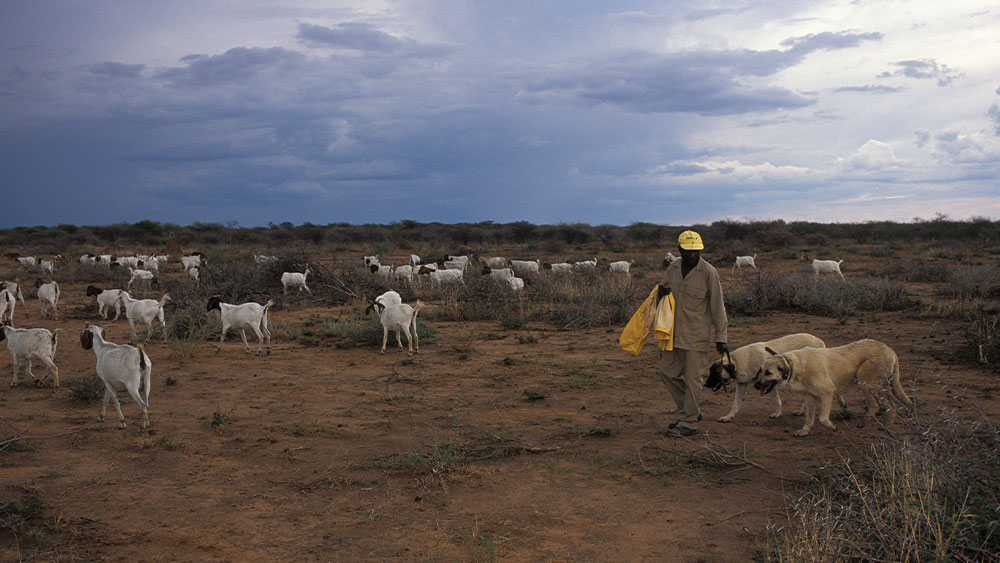
I have been with CCF since 2001, working with CCF’s Livestock Guarding Dog (LGD) program as an Education Officer. I often jokingly refer to myself as CCF’s “middleman” because my work helps facilitate the delivery and maintenance of LGDs in the farming community. I visit the farms that already have a dog working with their herds and also the farmers that want to get a dog. The job is a very important one and I take it very seriously. CCF places LGDs on rural farms experiencing human-wildlife conflict. Farmers that have LGDs working in their herds report an 80-100% reduction in livestock predation. This makes the program very popular within the rural farming community of Namibia, where most people live alongside predators like cheetahs and African wild dogs.
Farmers that would like a LGD join our waiting list, which is currently about two-years long. Once they are on our list, we schedule a farm visit for an evaluation to ensure that they have good infrastructure, healthy animals and a full-time herder. Not every farm passes the inspection. If I visit seven farms in a day, sometimes only five might be approved to have a LGD puppy. But, I always leave a list of improvements with people so that they can make adjustments and redo the inspection. Most farmers will bring their farm into compliance and pass their second inspection.
This summer I was very happy to be the driver that picked up two new puppies from the USA. Wilhelma Zoo in Stuttgart, Germany donated the funds to purchase and fly the puppies to Namibia. If everything goes as planned, these new dogs will help cut the time on our waiting list. This will make a big difference in our ability to mitigate conflict with predators.
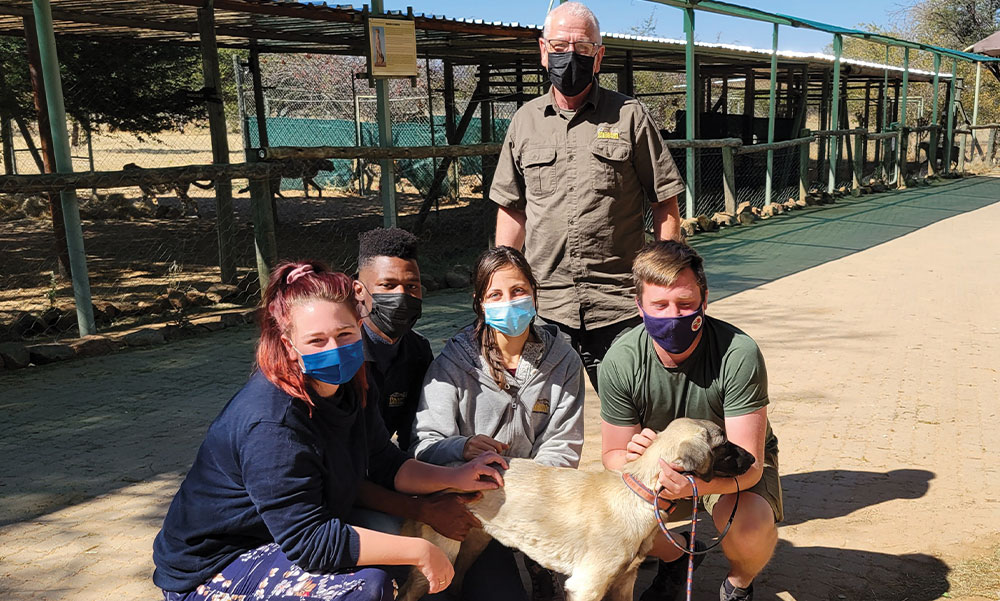
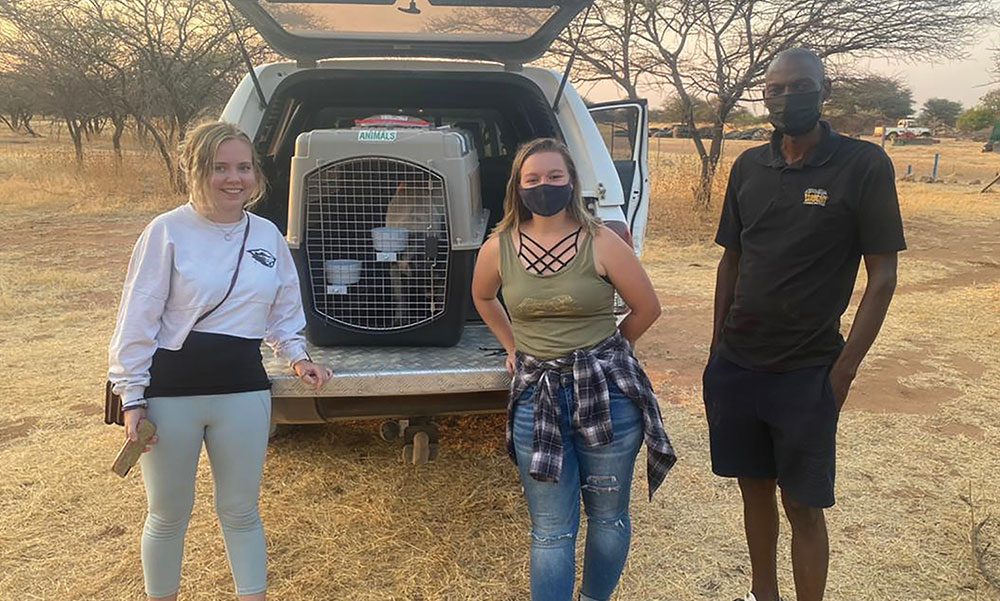
Your donations help us to continue our work in breeding, raising, placing, and monitoring new LGDs. These dogs are saving the cheetah in the wild by mitigating human-wildlife conflict and your support today will help us deliver more puppies to more farms across Namibia.
Right now, at our Model Farm the team is busily preparing puppies for placement on their new farms. The dogs don’t just go out and that’s the end of the story. The story has just begun. When I drop off the puppies they are still young and learning. Our team at CCF’s Model Farm has given them their Puppy Aptitude Test, a series of tests that measures the puppies’ intelligence and temperament by looking at their ability to perform small tasks. The puppies must not be aggressive and must not be too closely bonded with humans in order to make good LGDs.
I like to get to know the farmers we work with. When I drop off the dogs I take my time with them and make sure we go over their new dog packet together. The information in the packet includes a booklet outlining the importance and benefits of predator friendly farming and some helpful tips on feeding and preventative veterinary care. We discuss the schedule for follow-up visits to perform additional vaccines and deworming treatments. It is important for us to maintain contact with these farmers so that I can check on each dog’s progress.
I have been with CCF for so long that I have been able to develop very strong relationships within the community. I am currently monitoring a total of 135 dogs in the field and it is a very big job. I travel to farms throughout the country and work very hard so that farmers and their dogs can succeed. I am very committed and will do everything I can to help, but I can only do so much. The farmers need to make the biggest commitment to their dog’s success. In all my interactions with them I stress how important it is that their dog stays in good condition. The dog’s overall health and its overall performance are very closely linked. I help the farmers to understand that the additional investment of care that they put into their dog will save them money in the long term. When the dog is working at its best it can better protect livestock which is good for the farmer. It also helps to save cheetahs which is good for everyone.
In pre-pandemic times, our CCF team would normally conduct many training programs for farmers and community groups. Unfortunately due to COVID restrictions, we have not been able to gather many farmers together for group training sessions. Our access to classroom-based environmental education and visitation at the Research and Education Centre has also been limited over the past year and a half due to the pandemic. That doesn’t mean we are sitting with our feet up and relaxing, there are many things to do and many roles to fill at CCF. We all look forward to the day we can resume our involvement in the community at full capacity. In the meantime, we are developing new tools and techniques for socially distanced community outreach. Our Model Farm and the education and outreach programs we conduct in the community are critical to the success of our mission to save the cheetah in the wild.
Please help us to continue our work delivering new LGDs to farms across Namibia. By helping us with a donation today you will allow us to continue our farmer support with farm visits and new resources to enhance our educational outreach. Remember #DogsSaveCheetahs!
Related Reading
-
October 3, 2022
Eulogy for Aleya – CCF’s Stubborn Sweetheart -
April 8, 2022
Puppy Delivery Journey with Gebhardt

